Post
A catch
Save a catch to start your fishing logbook. You will be able to to share it with the community if yo want!
A fishing trip
Post an ad to go fishing with other fishermen
Save a catch to start your fishing logbook. You will be able to to share it with the community if yo want!
Post an ad to go fishing with other fishermen
Share a thought, a question with the community
My favorite cities
×Join our 1 fisherman and our 1 cofisherman in Augusta in Kennebec. The fishing forecast is currently 3.1. The most caught fishes here are the moapa dace, the yellow perch , the brook trout and the blueback herring. Come try the most famous fishing techniques like the how to catch smelt with square net?, fishing bream from a dock or jetty, surf fishing or trolling.
Our fishing forecast of Augusta indicates the best time to go fishing in this city.
The Moapa Dace
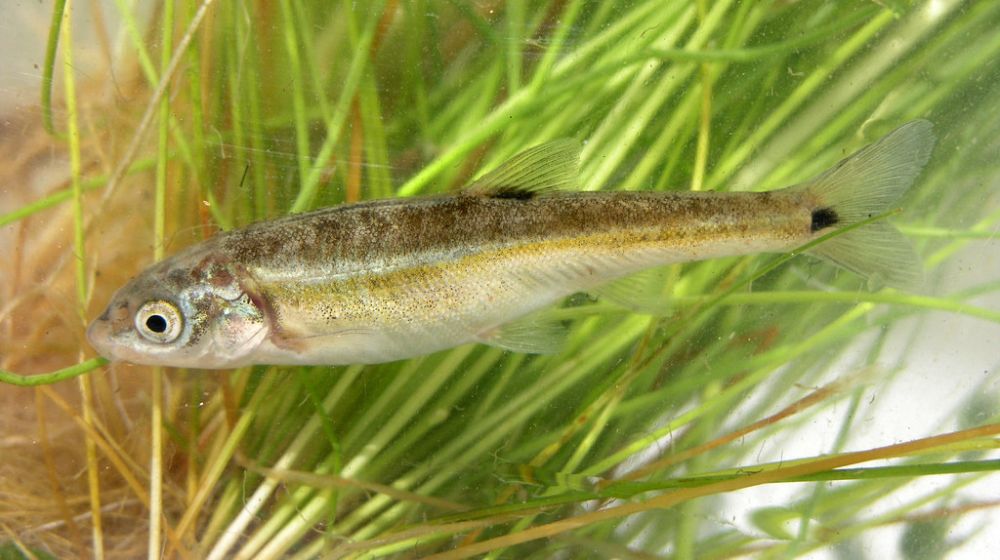
The Moapa Dace belongs to the Cyprinidae family. It has an average size of 10 to 13 cm. It has a lifespan of 4 years old. It may spawn throughout the year with a maximum activity in spring. It is an endangered species so the fishing is prohibited. It is a small fish with a short head, a terminal mouth and thick, semiconducting lips. The dorsal fin begins above or slightly behind the insertion of the pelvic fins and the caudal fin is forked. The dorsal color is dark, the sides are brownish with slightly golden areas and the ventral color is light. There is a dark spot on the tail and a dark line on each side of the body. The scales are small and deeply inlaid and the skin looks like leather. Some dace species have a small maxillary barbell, but not the species.
The Moapa Dace is a famous fish you can catch in Augusta.The Yellow Perch
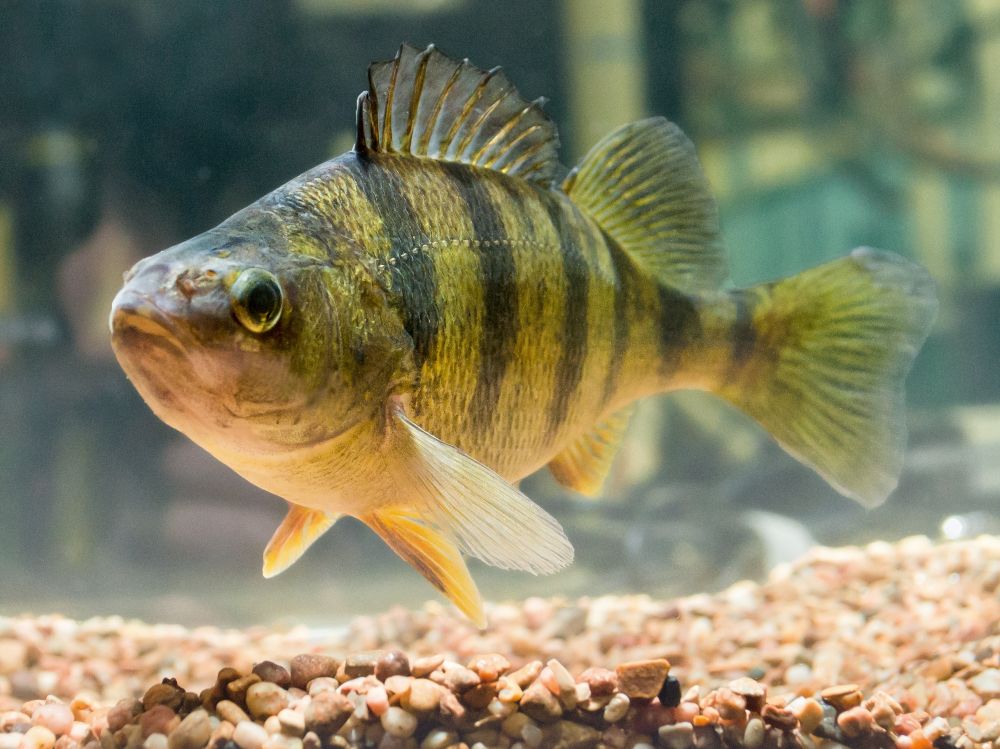
The Yellow Perch belongs to the Percidae family. The yellow perch measures on average 10 to 25 cm in length and weighs between 50 and 200 g (up to 36 cm for 500 g). The average lifespan is about 7 years. It breeds from April to May. It can be fished all year round. Its body is elongated and oval. Its head is moderately high and rounded at the tip. Its snout is obtuse and moderately long; it does not extend beyond the lower jaw. The mouth is terminal and slightly oblique. The jaws have small teeth. The operculum is finished with a strong thorn. There are 2 distinctly separated dorsal fins. The first dorsal spine is high and rounded, the spines are strong, the rays vary from 13 to 15. The second dorsal fin is almost as high, with 1 to 2 spines and 12 to 15 rays. The caudal is slightly forked. The color of the yellow perch varies according to its size and habitat. The back and dorsal surface of the head vary from bright green to golden brown to olive. The sides are pale yellow to yellow-green with about 7 vertical black bars of decreasing width. The ventral face of the head and body varies from grey to milk white. The dorsal and caudal fins range from yellow to green; the edge of the first dorsal fin is often black. In males in spawning livery the colors will be more intense: in particular, the pelvic and anal fins which are then bright orange.
The Yellow Perch is a famous fish you can catch in Augusta.The Brook Trout
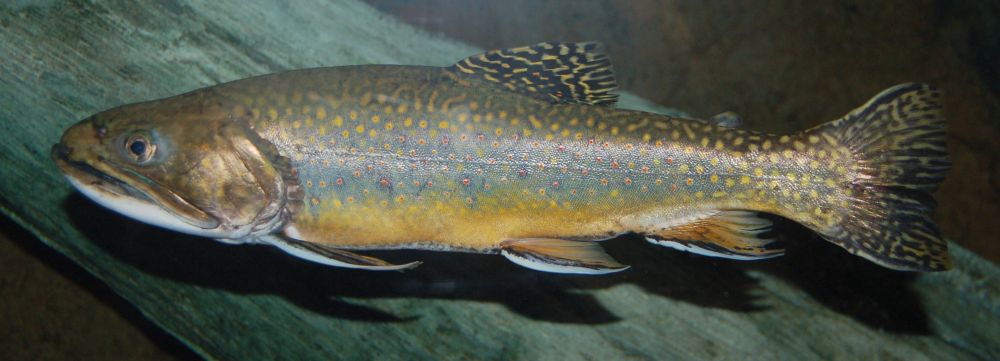
The Brook Trout belongs to the Salmonidae family. The average size of the brook trout is 50 cm and the weight only exceptionally exceeds 7 kg. It has a longevity of 5 years. It reproduces in autumn. It is fished from April to September. Its body is fusiform, laterally compressed, and slender. Its general shape is reminiscent of trout, although a little more massive. The body is arched at the dorsal fin. It has a small but stocky head with a widely split mouth, including teeth on the jaws, tongue and palate. On the body, the scales are small and thin. The Brook trout have two dorsal fins, one of which is characteristic of Salmonids. The color is distributed differently over the body: the back is rather dark brown, with lighter mottling and covered with a network of very close yellow spots. The sides have a beautiful light brown color, sometimes olive green. They also have yellow spots, less tightened. Round and red spots can also be seen on the sides. The color of the belly varies from white to pink, but can be pale yellow to dark red. It all depends on the environment in which it operates. Populations living near the bottom are paler than those living in open water, rather colorful. In males, the livery becomes bright orange during the breeding season. Finally, the pectoral, pelvic and anal fins are bordered by a white border, specific to the genus Salvelinus, highlighted here by a black band.
The Brook Trout is a famous fish you can catch in Augusta.The Blueback herring
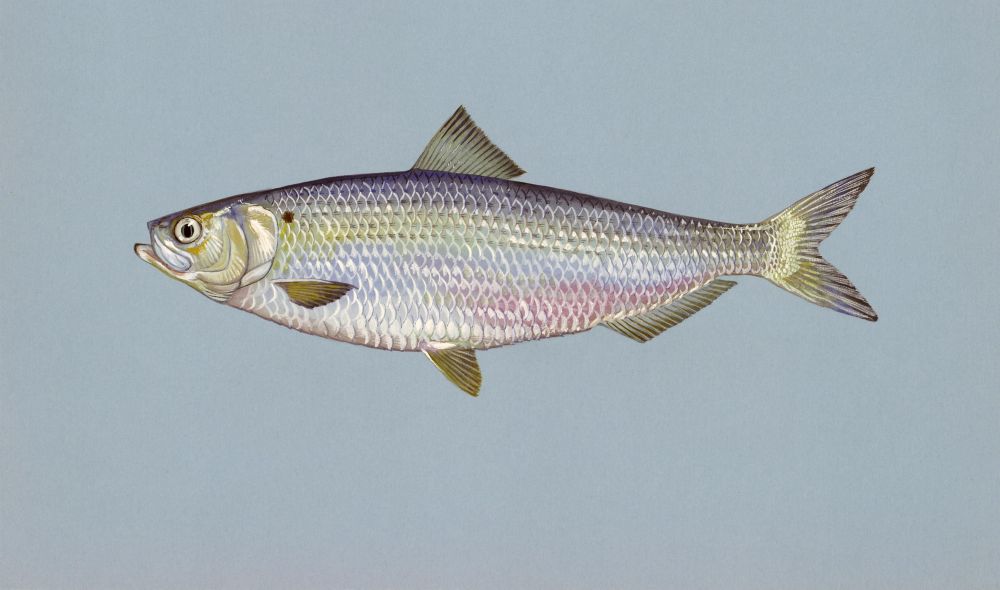
The Blueback Herring belongs to the Clupeidae Family. They reach a maximum size of about 40 centimeters and are assumed to live up to 8 years. They spawn from mid-March to the end of May. The Blueback herring can be fished all year round. These fish are silvery in color, have a series of scutes along their bellies and are characterized by a deep blue-green back. What distinguish this fish the most from other species is the black to dark color of its peritoneum (the mucous membrane of the abdominal cavity). It is one of the "distinctive" North American shads. They are often confused with alewives because it is difficult to differentiate between blue shad and alewife and, together, these two species are often considered collectively as "river herring". Female have larger eyes, greater body depth and a pearl to peritoneal white lining.
The Blueback herring is a famous fish you can catch in Augusta.Brown Trout
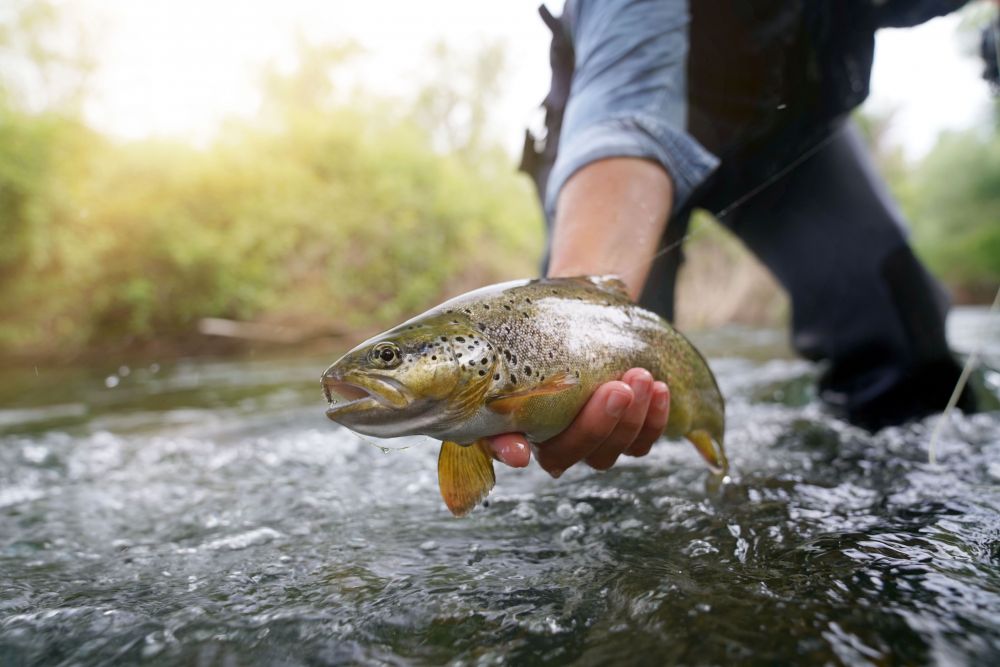
The Brown Trout belongs to the Salmonidae family. According to the location, the adult size varies from 25 cm to 80 cm for 300 to 800 g. It lives for 3 to 6 years. The spawning period starts in October and end in January. The female can lay up to 4000 eggs. The fishing period is open from the second Saturday of March until the third Sunday of September. This fish is not hard to catch but the fishing needs complex skills. Depending on its environment, the brown trout have a very variable color, but the brown trout, as its name shows, is rather brown with scattered black and red spots, depending on the spawners. It has a certain mimicry according to the bottom of its living spaces since the dominant brown will become a green dress if it lives close to the banks where yellow and even sometimes silvery white will mix. It has a "useless" adipose fin between the dorsal fin and the caudal fin. The head is tapered, strong and has a powerful jaw. Its back is a pretty black or night blue.
Brown Trout is a famous fish you can catch in Augusta.Our fishing forecast of Augusta indicates the best time to go fishing in this city.
Our fishing forecast of Augusta indicates the best time to go fishing in this city.
Our fishing forecast of Augusta indicates the best time to go fishing in this city.
